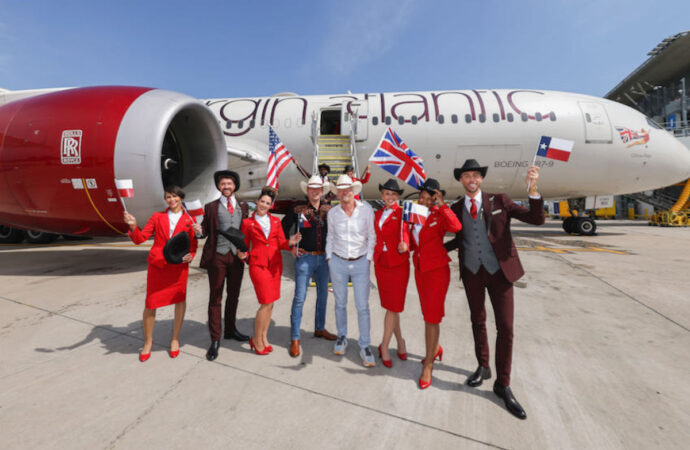The decision by Virgin Atlantic to end its service between London Heathrow and Austin, Texas, highlights the impact of the tech sector on corporate travel demand.
This development raises questions about the environmental implications of reduced air travel and the potential for alternative modes of transportation.
In a surprising announcement, Virgin Atlantic revealed that it will be discontinuing its service between London Heathrow and Austin, Texas, in January 2024. The decision comes as a result of “persistent softening in corporate demand, specifically in the tech sector,” according to the airline. Virgin Atlantic’s final flight on this route, which was launched in May 2022, will take place on 7 January.
Juha Jarvinen, Virgin Atlantic’s chief commercial officer, expressed the airline’s fondness for flying customers to Austin and experiencing the city’s vibrant music and culture. However, he noted that demand in the tech sector is not expected to improve in the near future, with corporate demand currently at only 70% of 2019 levels. This decline in demand has ultimately led to the decision to end the service.
Virgin Atlantic has assured affected customers that it will be in contact to provide options, including offering a full refund. This commitment to customer satisfaction is commendable, as it acknowledges the inconvenience caused by the cancellation of flights.
When the London Heathrow to Austin route was launched in May 2022, it marked Virgin Atlantic’s first new US destination since 2017. Sales leading up to the launch were reportedly “very strong,” with the route generating a 20% higher average ticket value compared to the airline’s other US services. This initial success makes the decision to discontinue the route all the more surprising.
In contrast to the reduction in service to Austin, Virgin Atlantic has announced plans to increase capacity between London Heathrow and Miami due to “robust customer demand” for premium leisure travel. The airline will be doubling its flights from 11 per week to twice daily for the summer 2024 season. This expansion highlights the varying dynamics in different travel markets and the importance of adapting to changing customer preferences.
The discontinuation of the London Heathrow to Austin service raises important environmental considerations. As air travel accounts for a significant portion of carbon emissions, reduced flights can have a positive impact on the environment. However, it also raises questions about the feasibility of alternative modes of transportation, such as high-speed rail or electric vehicles, to meet the needs of corporate travelers in the tech sector. Exploring sustainable transportation options should be a priority as we navigate the changing landscape of corporate travel.
In conclusion, Virgin Atlantic’s decision to end its service between London Heathrow and Austin, Texas, reflects the challenges faced by the tech sector and its impact on corporate travel demand. While the cancellation of flights raises environmental considerations, it also presents an opportunity to explore sustainable transportation alternatives. As the travel industry continues to evolve, it is essential to strike a balance between meeting customer demands and minimizing environmental impact.









